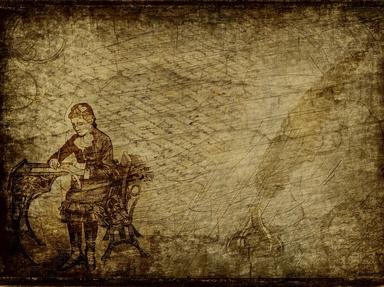Quiz Answer Key and Fun Facts
1. To whom are most of the stories in Kipling's 'Just So Stories' addressed in their opening sentence?
2. The three original 'Just So Stories' include all of these titles EXCEPT which one?
3. 'How the Whale Got His Throat' describes the origins of the filters found in the throats of baleen whales, such as blue whales, which they use to gather their food. What does Kipling say was Whale's original preferred food?
4. "In the beginning of years, when the world was so new and all, and the Animals were just beginning to work for Man," the Djinn of the desert found himself with three willing workers, whose labour was increased because of the refusal of a fourth to help out. Which of these was punished for his "'scruciating idleness" in this 'Just So Story'?
5. According to 'How the Rhinoceros Got His Skin', Rhinoceros had his close-fitting skin changed into the wrinkly one we know as retribution for what inconsiderate act?
6. What was the setting of the start of the story 'How the Leopard Got His Spots'?
7. 'The Elephant's Child' could have been called 'How the Elephant Got His Trunk', as that is the subject of the story. Elephant's Child, full of curiosity, wanted to know what Crocodile had for dinner. In what river did he encounter a crocodile who tried to eat him?
8. Each story in the 'Just So Stories' is followed by a relevant poem, highlighting either some detail of the story or the lesson to be learned from it. What is the title of the story that is followed by this poem?
"This is the mouth-filling song
Of the race that was run by a Boomer,
Run in a single burst-only event of its kind-
Started by big God Nqong from Warrigaborrigarooma,
Old Man Kangaroo first: Yellow-Dog Dingo behind."
9. 'The Beginning of Armadillos' describes how what animal attempted to work out how to tell a hedgehog from a tortoise as he roamed the banks of the Amazon River?
10. In 'The Cat That Walked by Himself', Cat says to Woman, who has previously tamed Dog, Horse and Cow, "I am not a friend, and I am not a servant. I am the Cat who walks by himself, and I wish to come into your cave.' He then gets her to agree to let him have access to the cave for shelter, to the fire for warmth, and to milk for sustenance if she ever says three words in his praise. Which of these is NOT one of the praiseworthy actions which ensued?
Source: Author
looney_tunes
This quiz was reviewed by FunTrivia editor
MotherGoose before going online.
Any errors found in FunTrivia content are routinely corrected through our feedback system.
